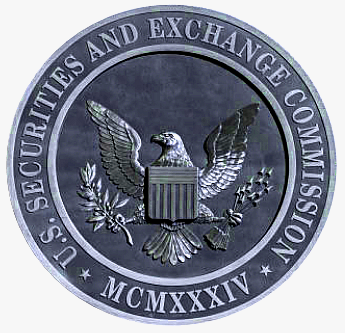Accredited InvestorsAltcoinAnatoli UnitskyAnti-Money Laundering (AML) In CryptoAPIArbitrageArtCoin TokenArticle DirectoryASICAuction Terminology GlossaryBasics of Stock Market InvestingBear MarketBest Crypto Payment Provider In the WorldBitcoinBlockchainBlockchain ConfirmationBlockchain Consensus MechanismBlockchain ForkBlockchain GlossaryBored Ape Yacht ClubBuild a Business That OutperformsBull MarketBuying SkyWay SharesByzantine Fault Tolerance (BFT) ExplainedCasascius CoinCentral Bank Digital Currency (CBDC)Centralized Crypto ExchangeCoinCoinsetCold WalletCollateralCommodity Futures Trading Commission (CFTC)Cross-Chain TechnologyCRUCrypto ExchangeCrypto GlossaryCrypto JokesCrypto Terms to KnowCrypto TickerCryptocurrencyCryptographyCryptojackingCryptounit BlockchainCryptounit GlossaryCryptounit ProgramdApp (Decentralized Application)Dead CoinDecentralized Exchange (DEX)Decentralized Finance (DeFi)Difference Between Bitcoin and EthereumDifferent Ways of Investing MoneyDigital CurrencyDistributed LedgerDo Your Own Research (DYOR)Dollar Cost Averaging (DCA)Dow Jones Industrial Average (DJIA)EncryptionERC-20ERC-721EthereumEvoScentFear Of Missing Out (FOMO)Fear, Uncertainty and Doubt (FUD)Fiat MoneyFNT Fintech CompanyGenesis BlockGlobal Unit PayGlossary of Banking TermsGlossary of Business TermsGlossary of Financial TermsHalvingHODLHot WalletHow Do I Start InvestingHow Rich is Satoshi Nakamoto?How to Create a BlockchainHow to Find Private InvestorsHow to Get Into FintechHow to Program Smart ContractsI Am Thrilled to Be a Part of This Global ProjectInitial Coin Offering (ICO)Initial Public Offering (IPO)Initial Token Offering (ITO)Innovation Basalt TechnologyInnovative Transportation TechnologiesInternational Bank Account Number (IBAN)Investing in Gold Mining StocksInvesting in Gold MiningJagerJoy of Missing Out (JOMO)Know Your Customer (KYC)LedgerLiquidity in CryptocurrencyMaker and Taker Fees in Crypto TradingMarket Capitalization (Market Cap)Meme CoinMetal Credit CardMetaMaskMillenials Now Have Access to Generational WealthMy Best Investment EverNew Digital EvolutionNFT GlossaryOff-Chain TransactionsOn-Chain TransactionsOpen Edition NFTPeer-to-Peer (P2P)Personal Loan GlossaryProbably the Best STO on the MarketProof of Stake (PoS)Real Estate Glossary of TermsReal Estate Investing GlossaryRebase TokenSecurities and Exchange Commission (SEC)Security Token ExchangesSecurity Token Offering (STO)Soulbound Decentralized Identities for Security TokensSoulbound ID Launch by Stobox Proves a SuccessSoulbound TokensStoboxStock Market GlossaryTestimonialsTether Platform and Token (USDT)UnitEx ExchangeUnitsky String TechnologiesUNTBUSDUValidatorWe Started Investing When We Were 25What are Blue Chip NFT?What are Blue Chip Stocks?What are Crypto Assets?What are Crypto Smart Contracts?What are CryptoPunks NFT?What are Digital Assets?What are Digital Collectibles?What are Gas Fees?What are Gas Wars?What are Hashmasks?What are Non Fungible Tokens?What are Non-Sufficient Funds (NSF)?What are Soulbound Tokens (SBT)?What are Stablecoins in Crypto?What are Transactions Per Second (TPS)?What are Utility NFTs?What are Utility Tokens?What Does Burning Crypto Mean?What Does Diamond Hands Mean?What Does Paper Hands Mean?What Does To The Moon Mean?What Does WAGMI Mean?What Happened to Satoshi Nakamoto?What is a 51% Attack?What is a Baby Boomer?What is a Backlink?What is a Banner?What is a Barcode?What is a Bid-Ask Spread in Crypto?What is a Block in Blockchain?What is a Block Reward?What is a Blockchain Address?What is a Blockchain Node?What is a Blockchain Oracle?What is a Blog?What is a Bond?What is a Bot?What is a Broker?What is a Business Accelerator?What is a Cash Cow?What is a Commercial Bank?What is a Commodity?What is a Con?What is a Credit?What is a Credit Limit?What is a Credit Rating?What is a Crypto Airdrop?What is a Crypto Bridge?What is a Crypto Scam?What is a Crypto Token?What is a Crypto Wallet?What is a Crypto Whale?What is a Crypto Winter?What is a Cryptocurrency Public Ledger?What is a Cryptocurrency Roadmap?What is a DAO?What is a Dark Pool?What is a Day Trader?What is a Dead Cat Bounce?What is a Default?What is a Derivative?What is a Digital Credit Card?What is a Fiscal Quarter?What is a Fungible Token?What is a Governance Token?What is a Grace Period?What is a Hard Fork?What is a Hot Wallet?What is a Hybrid Blockchain?What is a Hybrid PoW/PoS?What is a Joint Account?What is a Market Cap?What is a Merkle Tree in Blockchain?What is a Mining Farm?What is a Nonce? What is a PFP NFT?What is a POS System?What is a Prepaid Card?What is a Private Blockchain?What is a Private Key?What is a Public Blockchain?What is a Public Key?What is a Reserve Currency?What is a Ring Signature?What is a Routing Number?What is a Rug Pull in Crypto?What is a Safe Deposit Box?What is a Satoshi?What is a Security Token?What is a Seed Phrase?What is a Shitcoin?What is a Sidechain?What is a Soft Fork?What is a Spot Market?What is a State Bank?What is a SWIFT Code?What is a Tax Identification Number (TIN)?What is a Time Deposit?What is a Transaction Account?What is a Variable Interest Rate?What is a Virtual Assistant (VA)?What is a Virtual Card?What is a Virtual Currency?What is a Visa Card?What is a Whitelist in Crypto?What is a Whitepaper?What is Accounts Payable (AP)?What is AMA in Crypto?What is Amortization?What is an Accrual?What is an ACH Transfer?What is an Actuary?What is an Addendum?What is an Algorithm?What is an Angel Investor?What is an Annuity?What is an Asset?What is an ATM?What is an Atomic Swap?What is an Audit?What is an Avatar?What is an EIN?What is an Embargo?What is an Entrepreneur?What is an IDO (Initial Dex Offering)?What is an Interest Rate?What is an Internet cookie?What is an Investment Bank?What is an NFT Drop?What is an NFT Floor Price?What is an Ommer Block?What is an Orphan Block?What is an Outstanding Check?What is an Overdraft?What is Artificial Intelligence (AI)?What is B2B (Business-to-Business)?What is B2G (Business-to-Government)?What is Bartering?What is Bitcoin Dominance?What is Bitcoin Pizza Day?What is Blockchain Immutability?What is Blockchain Used For?What is BRICS?What is Business-to-Consumer (B2C)?What is C2C (Customer to Customer)?What is Capitalism?What is Catfishing?What is CFD Trading?What is Check Kiting?What is Cloud Mining?What is Communism?What is Content Marketing?What is Decentralization in Blockchain?What is DeFi in Crypto?What is Delisting?What is Depreciation?What is Digital Marketing?What is Diversification?What is Double Spending?What is Dumb Money?What is Dumping?What is Earnings Per Share (EPS)?What is Economics?What is Email Marketing?What is Equity?What is Etherscan?What is Fintech?What is Foreign currency?What is Forex?What is Fundamental Analysis (FA)?What is GameFi?What is Generative Art NFT?What is Gwei?What is Hard Currency?What is Hash Rate?What is Hashing in Blockchain?What is Inflation?What is Initial Game Offering (IGO)?What is Interest?What is Interest Income?What is Mainnet?What is Mastercard?What is Metaverse in Crypto?What is Mining in Cryptocurrency?What is Minting NFT?What is Mobile Banking?What is Money Laundering?What is NFT Alpha?What is NFT Metadata?What is NFT Rarity?What is NGMI Meaning?What is Nominal Interest Rate?What is Online Banking?What is Open-End Credit?What is OpenSea NFT Marketplace?What is Personal Identification Number (PIN)?What is Play-to-Earn?What is Polygon?What is Proof of Authority (PoA)?What is Proof of Work (PoW)?What is Public Key Cryptography?What is Pump and Dump?What is Quantum Computing?What is Refinancing?What is Retail Banking?What is Ripple?What is Sharding?What is Slippage in Crypto?What is Smart Money?What is Solvency?What is Soulbound ID?What is SSL?What is Staking in Cryptocurrency?What is Technical Analysis (TA)?What is Testnet?What is the Ask Price?What is the Better Business Bureau (BBB)?What is the Bid Price?What is the Dark Web?What is the InterPlanetary File System (IPFS)?What is the Gold Standard?What is the Lightning Network?What is the Prime Rate?What is the Sandbox?What is the Secondary Market?What is the World Bank?What is Tier 1 Capital?What is Tokenomics?What is TRC-20?What is Universal Banking?What is Unspent Transaction Output (UTXO)?What is Usury?What is Volatility in Crypto?What is Wash Trading?What is Web3?What is Whisper?What is XRP?What is Zero-Knowledge Proof (ZKP)?Who is Beeple?Who is Satoshi Nakamoto?Who is Vitalik Buterin?Why Tokenization is a Safe HavenWhy You Should Try Your Hand at Trading
Securities and Exchange Commission (SEC)
- Home
- Crypto Glossary
- Securities and Exchange Commission (SEC)
The Securities and Exchange Commission (SEC) aims to safeguard investors, promote equity, efficiency, and orderliness in the markets, and foster the formation of capital.

Its ultimate objective is to encourage a market atmosphere that upholds the public's confidence and trust.
What is Securities and Exchange Commission?
The SEC is a government agency responsible for regulating and overseeing the securities industry in the United States. The SEC was created in 1934, as a response to the stock market crash of 1929 and subsequent Great Depression. The agency's main goal is to protect investors by ensuring that the securities markets operate fairly and transparently.
The SEC has a wide range of responsibilities, which include:
- Regulation of Securities Markets: The SEC has the power to oversee the securities markets, including stock exchanges, broker-dealers, and investment advisers. This oversight includes monitoring and enforcing compliance with laws, rules, and regulations that govern the securities industry.
- Enforcement of Securities Laws: The SEC has the authority to enforce federal securities laws, including the Securities Act of 1933, the Securities Exchange Act of 1934, and the Investment Advisers Act of 1940. The agency can investigate, bring civil charges, and prosecute individuals and companies that violate these laws.
- Protection of Investors: The SEC's main focus is to protect investors by ensuring that the securities markets are fair and transparent. The agency accomplishes this by requiring companies to disclose certain information to the public, such as financial statements, risk factors, and executive compensation. The SEC also investigates and prosecutes insider trading, market manipulation, and other fraudulent activities that harm investors.
- Education of Investors: The SEC provides a wealth of information to investors through its website and publications. The agency educates investors on how to invest wisely, avoid fraud, and protect their investments.
To accomplish its goals, the SEC employs a large staff of lawyers, accountants, economists, and other professionals. The agency is headed by five commissioners appointed by the President of the United States and confirmed by the Senate. The SEC also has regional offices located throughout the country to oversee and enforce securities laws in local markets.
Securities and Exchange Commission and the Crypto Market
One of the key issues that the SEC has had to grapple with is whether certain cryptocurrencies should be considered securities. Securities are defined as tradable financial assets, such as stocks and bonds, that have value and represent ownership in a company or organization. Remember that SEC has the authority to regulate the issuance and trading of securities in the United States.
In 2017, the SEC issued a report stating that some initial coin offerings (ICOs), which are a means of raising funds for new cryptocurrency projects, could be considered securities. The report stated that if a cryptocurrency is an investment contract, it is a security and subject to the same laws and regulations as other securities.
The SEC's position on cryptocurrencies has evolved over time, and the agency has taken enforcement action against companies and individuals who have violated securities laws. For example, in 2018, the SEC charged two companies with conducting illegal ICOs and forced them to pay fines and return investor funds.
In addition to ICOs, the SEC has also been monitoring the trading of cryptocurrencies on exchanges. The agency has stated that it is concerned about the lack of transparency and oversight in the crypto market, and that it is possible that some exchanges may be operating illegally or engaging in market manipulation.
To address these concerns, the SEC has taken steps to increase regulation of the crypto market. In 2020, the agency issued new guidelines for the custody of digital assets, and it has also been working to develop a regulatory framework for cryptocurrency exchanges.
Overall, the SEC's position on cryptocurrencies has been one of caution and concern. The agency recognizes the potential benefits of blockchain technology and cryptocurrencies, but it is also aware of the risks and challenges that these new technologies present. As the crypto market continues to evolve, it is likely that the SEC will play an increasingly important role in regulating this rapidly changing industry.
Related Articles

Initial Coin Offering (ICO)
However, the Securities and Exchange Commission issued a warning to investors, claiming that celebrities using social media to advocate ICOs without reporting any compensation they got is prohibited.

What is Ripple?
In December 2020, the Securities and Exchange Commission (SEC) filed a lawsuit against Ripple, alleging that XRP should have been registered as a security since the company can decide when to...

How to Find Private Investors
Nevertheless, the U.S. Securities and Exchange Commission defines angel investors as accredited investors that reach a net worth of at least $1 million and earn...

Accredited Investors
The Securities and Exchange Commission uses the term "accredited investor" under Regulation D to describe individuals who are financially savvy and have no need for the protection offered by...
- Home
- Crypto Glossary
- Securities and Exchange Commission (SEC)